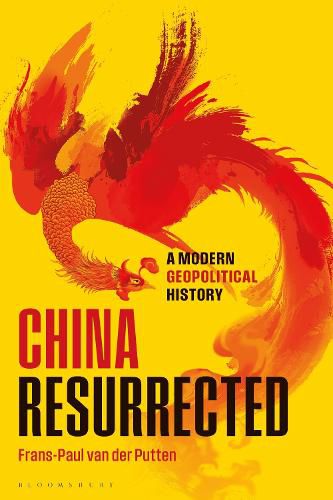Readings Newsletter
Become a Readings Member to make your shopping experience even easier.
Sign in or sign up for free!
You’re not far away from qualifying for FREE standard shipping within Australia
You’ve qualified for FREE standard shipping within Australia
The cart is loading…






China's rise to superpower is seemingly a modern phenomenon, but it has a long history. This book follows China's geopolitical transformation on the world stage, from struggling to defend herself against the British in the Opium Wars, to rivalling the United States for supremacy. What started as a response to Europe's colonial influence has gradually become China's quest to take a leading role on the word stage. But how did this happen? And what kind of actor is China as a global great power?
The answers to these questions lie in how China has been shaped by its changing relationships with major world powers over the last two centuries. Arguing that a series of military defeats in the Opium Wars, Boxer Crisis and Japanese occupation led to a deep-rooted national sense of geopolitical vulnerability, van der Putten shows how this imbalance of power has resulted in Chinese distrust and uncertainty, even after it ceased to be prey to imperialist powers.
Tracing China's relations with other major powers over the last 185 years, China Resurrected shows how they have influenced the way in which China itself has become a leading power, and what this means for its relations with the West.
$9.00 standard shipping within Australia
FREE standard shipping within Australia for orders over $100.00
Express & International shipping calculated at checkout
China's rise to superpower is seemingly a modern phenomenon, but it has a long history. This book follows China's geopolitical transformation on the world stage, from struggling to defend herself against the British in the Opium Wars, to rivalling the United States for supremacy. What started as a response to Europe's colonial influence has gradually become China's quest to take a leading role on the word stage. But how did this happen? And what kind of actor is China as a global great power?
The answers to these questions lie in how China has been shaped by its changing relationships with major world powers over the last two centuries. Arguing that a series of military defeats in the Opium Wars, Boxer Crisis and Japanese occupation led to a deep-rooted national sense of geopolitical vulnerability, van der Putten shows how this imbalance of power has resulted in Chinese distrust and uncertainty, even after it ceased to be prey to imperialist powers.
Tracing China's relations with other major powers over the last 185 years, China Resurrected shows how they have influenced the way in which China itself has become a leading power, and what this means for its relations with the West.